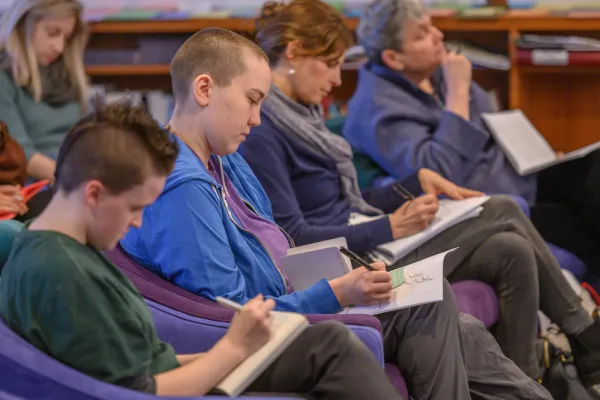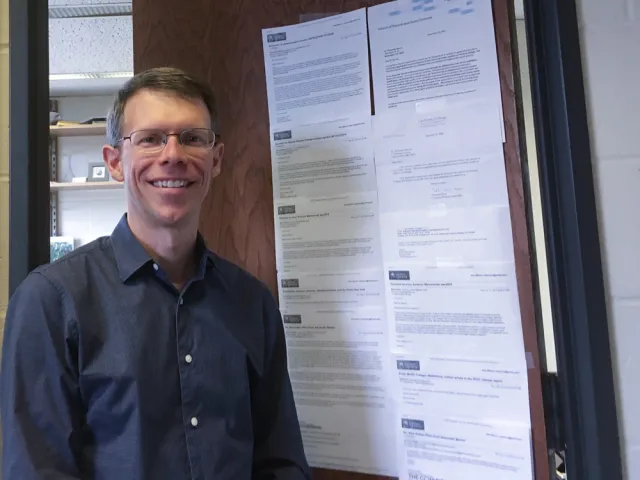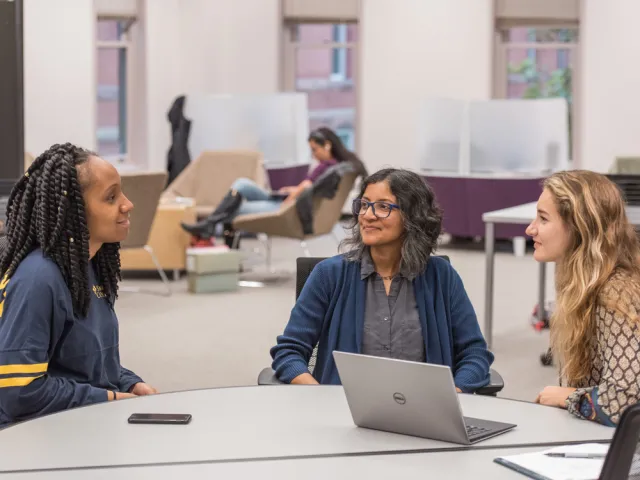Viewing Failure as Part of Learning
Research & Inquiry

Published October 25, 2019
Alex Barron, assistant professor of environmental science and policy, has decorated his office door with a layer of journal article and job rejection letters—including one he received from Smith some years ago.
Barron, a former deputy associate administrator at the Environmental Protection Agency who has been teaching at Smith since 2015, hopes his display will convey a positive message to students: “I want to show that things don’t always work out on the first try,” he says. “It helps to know that some doors, when they close, don’t stay closed forever.”
Barron’s door display is among the strategies Smith faculty are using to help students view setbacks and risk-taking as an integral part of learning. While the ability to take on challenges has long been a goal of a Smith education, in recent years the college has focused on expanding the practice of “inclusive teaching”—an approach aimed at helping all students feel valued and assured about learning.

Professor Alex Barron and his door of rejection letters.
Inspired by initiatives such as the “Failing Well” program, co-hosted by the Wurtele Center for Leadership and Lazarus Center for Career Development, and the inclusive teaching circles of the Sherrerd Center for Teaching and Learning, faculty members are finding creative ways to help students feel more confident about the learning process.
Some examples:
- In her introductory classes, professor of psychology Benita Jackson shares scientific research showing the health benefits of a mindset that frames problems as opportunities rather than threats. In contrast to society’s emphasis on perfection and competition, “we talk a lot about failing forward—trying things out so you can refine and get feedback,” she says. “The idea is to make failing an integral part of learning.”
- Assistant professor of economics Simon Halliday chooses a day in the leadup to midterm exams to demonstrate his less-than-perfect skill at doing handstands. “I’m showing students something with which I am struggling and for which I’ve received coaching,” he explains. “It helps those who may not have been as likely to strike up a conversation with me to come to the front of the room to talk.”
- Astronomy professor James Lowenthal uses theater improv games to foster a sense of ease around making mistakes. He also invites students to attend the first office hours of the semester in groups to help make that initial contact less intimidating. “People don’t learn well when they are tense or afraid,” Lowenthal says. “I want to let students know they are part of this enterprise.”
Faculty leaders say inclusive teaching is important at Smith, where the student population is made up of high achievers from a wide variety of backgrounds and experiences.

Professor Benita Jackson (center) speaks with two students in Young Library.
“We need to make sure we talk about our own personal failures in our classes as part of inclusive teaching,” says Sara Pruss, associate professor of geosciences and director of the Sherrerd Center. “That, in fact, some of those wrong turns ultimately helped get us on the right path and were important moments of learning and reflection.”
Such sharing not only helps to boost students’ comfort levels, but more importantly, their resilience, says Barron.
“I work on climate policy, where you have to be ready to take your lumps,” he notes. “Taking risks and pushing the envelope is a really important part of the profession.”
Barron’s former student Alexandra Davis ’18 says she’s come to appreciate that lesson.
“That door of rejection has stayed with me as an alum, and I now keep my own folder of ‘no’s’ that I flip through periodically to remind myself of where I’ve been,” says Davis, who is working as a sustainability consultant at an engineering firm in Maine. “I’ve learned the value of the risks I chose to take.”